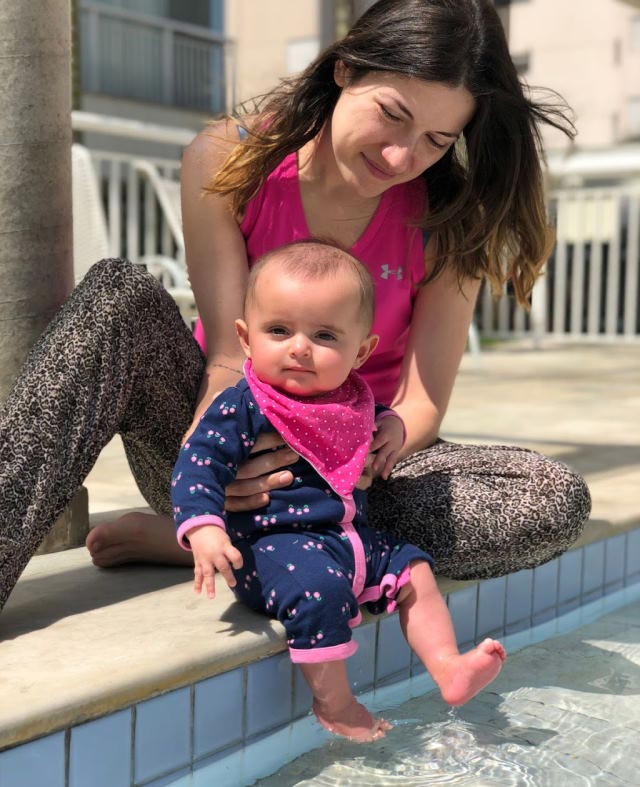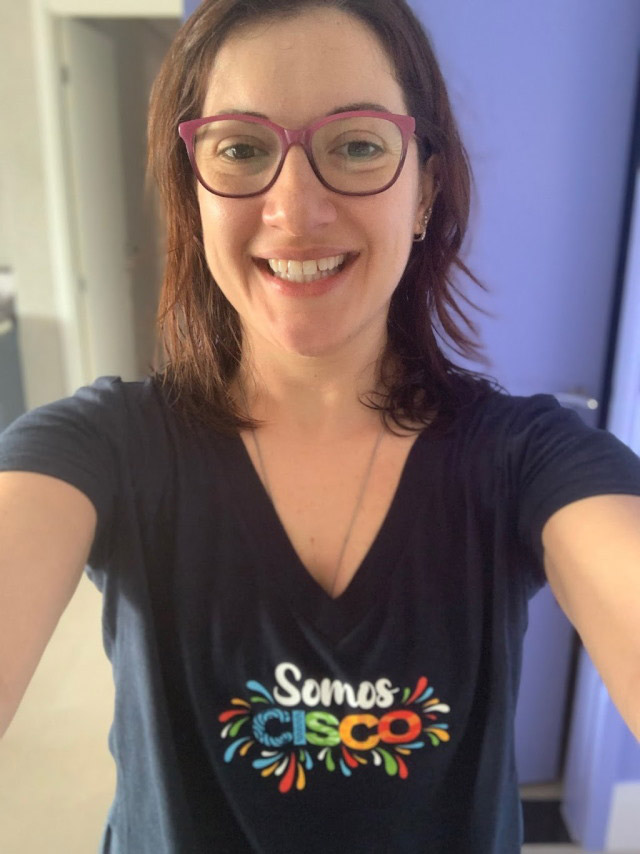2021-October-06
Did you know? You can share this story using the social media icons on the upper left. Use the hashtag #WeAreCisco. You can also rate or comment on the story below.
In Real Life and Virtually, Things Are Easy to Assume
BY PAULA SILVEIRA TEMPLE · COMMUNICATIONS & ENGAGMENT MANAGER · BRAZIL
WITH HELEN GALL
Editor’s Note: The following story involves a discussion about mental health, including suicide, which might be upsetting to some readers.

I've been with Cisco for close to 15 years. I'd easily say that almost everyone who has crossed my path over the years — be it in real life or virtually — have commented on my constant happiness.
I'm usually the one in every Webex meeting that breaks the silence, makes a joke, or says something silly or funny. It's just how I'm wired — even though every now and then it's something I try to "tone down" at work, I'm not always successful at that.
I'm telling you this because, in real life, things are easy to assume. In the virtual world it becomes even easier.
Online meetings and social media are just that tip of the iceberg, where you show a version of yourself, albeit not always exaggerated or a lie, but still just a version of yourself that may not be the real you or the whole story.
When I had my daughter almost four years ago, my life took a few unexpected turns. Paired with the natural difficulties of being a new mom, it triggered a severe case of postpartum depression (PPD) for me.
You hear about PPD, sometimes referred to as the baby blues, but did you know that statistically 25 percent of mothers suffer from it? And usually, people assume that PPD is always related to some kind of rejection of the baby.
It wasn't, in my case.
I talk about PPD openly, but not in too much detail. Again, consider the iceberg analogy. Although I want to build awareness of this common type of depression, I constantly face the fear of people thinking I'm overreacting or exaggerating. Especially because I’m known as “the happiest person they know."

I remember while I was very sick — my baby was around five months old, I had friends that would tell me, "It's impossible for you to have depression. You're telling jokes!" Or even, "Girl, you're still hitting the gym, of course you're not depressed!"
I'm sure everyone was trying to help, but being depressed doesn't necessarily mean never leaving my bed (which happened at one point). I like to describe it as when every tiny thing becomes a huge thing.
It's a feeling of complete lack of hope, often confused as a simple lack of faith, or when you have a very hard time visualizing the next minute.
Lack of hope was my specific characteristic. I was certain I wasn't built to be a mother, that I was too selfish for the job, and the only thing I could do to solve it was dying. No other way out. It would never get easier.
I'm still not comfortable discussing that part of my story, but it's important to express how far those thoughts went.
For a couple of months daily — sometimes even hourly — I contemplated suicide. There is no way to explain the hurt or the feeling of being completely and easily replaceable and dispensable.
But as you can see, I'm still here. Life has taken some strange turns since then, and even included a few serious health issues, but look at me, still here. And now I really don't intend to leave this world until I'm 100 years old.
I had an amazing network of support which included the obvious — my husband, mother, and my best friend, but also medications, a wonderful doctor, meditation, therapy, faith and, of course, Cisco.

I had a new manager at the time, and it was very hard to come back to work while feeling all those things plus the usual post-maternity leave foggy feeling. But I tried to be as honest I could've been, and it worked out fine. Our Cisco health support is one of the best in the country, and I probably would have had a very different experience without it.
I'm currently part of two employee groups at Cisco. One is the Conexión ERO, where we organize activities and development opportunities for the Latinx community. The other is Pavelka House, which I've been passionate about since day one. It feels so good spending time doing things for our employees to make them feel heard. It does mean putting in some extra hours every now and then, but I don’t mind because it's for a wonderful cause!
My final message to you is: If you're struggling for whatever reason and think your mental health may be affected, look for help.
Especially after we all experienced the challenges last year, when at times it became challenging to feel normal.
Talk, sign up for therapy, find a good doctor, or speak to friends — you do not need to face it alone.
If you feel that someone around you is not doing OK, don’t guess. Reach out. Ask how they are doing, offer your time to listen.
Usually all we need is someone to take a breath with.
Related Links
You May Also Like…
- Aylan Shelton describes her experience with body-focused repetitive behaviors and realizing she wasn’t alone.
- What Megahan Richardson wants everyone to know about suicide prevention after her personal experience.
- Liz Helyer shares how she found answers, support and strength along her mental health journey.
- Giles Heron helps us understand what living with obsessive-compulsive disorder is really like.
- David Salter shares how it’s ok not to be ok, and no matter what he goes through, his team always has his back.
Connect everything. Innovate everywhere. Benefit everyone.
Share your thoughts!
Log in to rate and commentShare your thoughts on the story here!